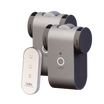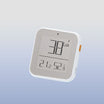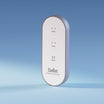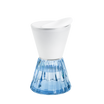Here's an overview:
- Introduction to Dr. Andrew Huberman's Approach to Morning Activities
- The Science of Feeling Energized: Circadian Rhythms and Morning Light
- The Morning Activity: Leveraging Sunlight for Optimal Energy Levels
- Practical Tips for Integrating the Morning Activity into Your Daily Routine
- The Connection Between Morning Exercise and Improved Sleep Quality
- Understanding Sleep Hygiene: Tips from Dr. Andrew Huberman
- Conclusion: Embracing Morning Activities for Better Sleep and More Energy
Introduction to Dr. Andrew Huberman's Approach to Morning Activities
Dr. Andrew Huberman, a renowned neuroscientist and professor at Stanford University School of Medicine, has extensively researched the human brain and its relationship with behavior and physiological responses. Through his research, Dr. Huberman has developed insights into how morning activities can significantly impact our energy levels, sleep patterns, and overall well-being.
His approach emphasizes the importance of syncing our biological rhythms with specific morning behaviors to optimize neurochemical production. The goal is to leverage our natural physiology to enhance daily functioning and health. By incorporating scientifically-backed techniques into our morning routine, we can prime our bodies and minds for a more energized and restful existence.
The Science of Feeling Energized: Circadian Rhythms and Morning Light
Circadian rhythms govern the human body’s internal clock, controlling sleep-wake cycles. Exposure to morning light plays a pivotal role in resetting these rhythms daily. Light-sensitive cells in the retina connect to the brain's suprachiasmatic nucleus, which regulates circadian rhythms. When morning light enters the eyes, it signals the brain to increase cortisol and decrease melatonin, hormones that promote wakefulness and sleepiness respectively. Thus, this natural light exposure can help synchronize the body’s clock, leading to improved energy levels throughout the day.
The Morning Activity: Leveraging Sunlight for Optimal Energy Levels
Incorporating early morning sunlight exposure can profoundly affect energy levels throughout the day. Dr. Andrew Huberman emphasizes the critical role of natural light in regulating our circadian rhythms—the internal clock governing sleep-wake cycles. By embracing the morning light, individuals trigger a cascade of hormonal responses:
- Suppression of melatonin, the hormone responsible for sleepiness
- Stimulation of cortisol, helping with alertness and focus
- Regulation of serotonin, enhancing mood and overall well-being
To maximize benefits, Dr. Huberman recommends engaging in this activity within 30 minutes of waking, for at least 10 minutes. Facing the sun, one can harness the light's full spectrum, invigorating the body's natural energy reserves and setting the tone for a vibrant, productive day.
Practical Tips for Integrating the Morning Activity into Your Daily Routine
- Set a consistent wake-up time: Align with your body's natural circadian rhythm by waking up at the same time every day. This regularity primes your system for the morning activity.
- Prepare the night before: Lay out exercise clothes or set up your meditation space to reduce friction and excuses in the morning.
- Start small: If the activity seems daunting, begin with just five minutes daily and gradually increase the duration.
- Link to an existing habit: Attach the new activity to a habit you already have, such as drinking coffee or brushing your teeth, to create a strong routine.
- Track your progress: Use a journal or an app to monitor how the morning activity affects your energy and sleep patterns, which can motivate you to stick with it.
The Connection Between Morning Exercise and Improved Sleep Quality
Engaging in morning exercise can significantly influence sleep quality. It helps regulate the body's circadian rhythm, which controls the sleep-wake cycle. By exercising in the morning:
- The body's endorphin levels increase, promoting daytime alertness and leading to more profound tiredness at night.
- Morning light exposure during exercise helps synchronize the body's internal clock, cueing it to the time of day.
- Exercise raises the body's core temperature, and the subsequent drop in temperature in the evening may help facilitate sleep onset.
- Stress, a common sleep disruptor, can be reduced through morning physical activity, as exercise is known to lower cortisol levels.
Evidently, incorporating exercise into the morning routine plays a crucial role in enhancing sleep quality.
Understanding Sleep Hygiene: Tips from Dr. Andrew Huberman
When it comes to enhancing sleep quality, Dr. Andrew Huberman, a renowned neuroscientist and sleep researcher, emphasizes the importance of maintaining proper sleep hygiene. Here are some actionable tips he suggests:
- Stick to a Consistent Sleep Schedule: Go to bed and wake up at the same time every day to regulate your body's internal clock.
- Create a Pre-sleep Routine: Develop a winding-down process before bed to signal your brain that it's time to sleep.
- Control Light Exposure: Dim the lights and avoid screens an hour before bedtime to promote melatonin production.
- Maintain a Comfortable Sleep Environment: Ensure your bedroom is cool, quiet, and dark for optimal sleeping conditions.
- Avoid Stimulants: Limit caffeine and nicotine, especially in the hours leading up to bedtime.
- Exercise Regularly: Engage in daily physical activity, but avoid rigorous workouts close to bedtime.
By following these guidelines, you can improve your sleep quality and overall energy levels.
Conclusion: Embracing Morning Activities for Better Sleep and More Energy
By integrating morning activities into daily routines, individuals can enhance their sleep quality and boost their energy levels throughout the day. Dr. Andrew Huberman suggests that a consistent morning practice, such as exposure to natural light and engaging in physical exercise, can set a positive tone for the rest of the day. It aligns the body's circadian rhythms, which is crucial for restorative sleep and sustained vitality. Adopting such activities can lead to a more balanced and fulfilling lifestyle, ultimately contributing to overall well-being.



















![I Tried Andrew Huberman's Morning Routine - [30 Days + Blood Tests]](http://www.oter-group.com/cdn/shop/articles/sddefault_c579a1aa-71b2-4be2-bd86-50828ace3c1f.webp?v=1716434244&width=640)
Leave a comment
All comments are moderated before being published.
This site is protected by hCaptcha and the hCaptcha Privacy Policy and Terms of Service apply.